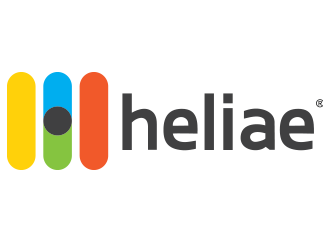International Day of Women and Girls in Science
The International Day of Women and Girls in Science is celebrated each year on February 11 and was adopted by the United Nations to promote full and equal access to and participation in science for women and girls. To mark this day at Heliae, we asked our women scientists and those working to assist in our research and technologies to reflect on their experiences and offer advice.
Nicole Rusconi, Supervisor Seed Production
My current job is a result of my passion for sustainability, my love of biology & lab work, and random chance. I’ve always tried to live in a way that contributes to the continued health of the planet, and as a lover of natural places and animals, I always hoped for a “green” career where I could give back to the planet. In high school, I realized that as a scientist, I could research and generate new information and new solutions to problems, which I thought sounded much more meaningful than any other profession. I also became interested in cellular biology, because I find that understanding the basic unit of life can lead to greater understanding of much larger organisms. Everything functioned in a specific way for a specific purpose, and I loved the clarity of it. Then, in the summer before college, I was working my restaurant job, and when a patron asked what I was going to school for, I told him I would be a biology major. He turned out to have a small startup business doing bioremediation with algae, and they needed personnel in their supporting lab, and that turned into my first internship & part-time job throughout college! By continuing to apply my degree in cellular biology to the sustainable career opportunities that the algae industry provides, I’ve found a job that is interesting as well as meaningful.
So, my advice to young women is to share your interests and don’t be afraid to put yourself out there, because you never know who might be able to help you reach your goals. And, in addition to being bold outwardly, have confidence in your own ability to lead and learn. Remember that “If you don’t ask, the answer is always ‘no’”. Women sometimes are afraid to come off as pushy or bossy when they assert themselves, or sensitive when feeling rejected, but that doesn’t mean you shouldn’t emphasize your own skills, negotiate with your boss, or put yourself out there.
Lindsay Vicars, Supervisor Ag Science Research
Whenever I think about my career in science and the struggles I went through to reach where I am, a quote from the old black and white movie Harvey comes to mind. “In this world, you must be oh-so smart, or oh-so pleasant. Well, for years I was smart. I recommend pleasant.” I also think of all the advice I was given, that as a woman you must be bold and assertive to “make it” in science, and that otherwise you would be considered meek and seen as unfit for leadership or promotions. As a confident, intelligent, and introverted individual, neither of these rang true; both made me feel I would have to pretend to be someone I was not if I wanted to be successful.
However, in my position here at Heliae, conducting research in agriculture and soil science, I have been able to utilize my introvert skills of attentive listening and careful consideration to further my position in the company without compromising who I am. I continually develop my knowledge and passion, presenting my research to further sustainable agriculture and promote a wholistic view of soil-crop relationships. When I advocate for myself, I can speak at great volume with my work, even if I myself am soft-spoken. In the end, you do not have to be oh-so smart or oh-so pleasant. You can be smart and pleasant, quiet and courageous. As long as you have pride in your work and confidence in yourself, you can succeed as a woman in science.
Teresa Bock, General Counsel
My first experience in science was in high school. While I excelled in my classes, I suspected that my school did not have the strongest science programs. Unfortunately, it was made clear, no doubt remaining, when I had the opportunity to attend a National Science Foundation, Summer Science program. I was lost and energized at the same time. However, with my weak science background, I lacked the confidence to pursue the coursework that excited me. And like many others, I had seen far more men than women in the fields of science and engineering. Still being drawn to that field, my first thought was not to criticize the discrepancy but to ask how I can be a part of that. After all, what do scientists and engineers do? They fight against the status quo, the norm. So, I found a way, as a lawyer. Like many lawyers, I did not have to be a scientist or engineer to be successful. My success is measured by what I have learned, and continue to learn, from those around me – particularly the scientists and engineers and being a part of their passion – seeing their ideas become a reality. And for much of my career, that reality has been products that improve, and even save, human lives. To me, there is no greater joy than reading the letter from a parent who is thanking you for your product that saved their child’s life. If I have any advice to offer any girl or woman, that is to follow what energizes you. It does not matter your background. You should never let anybody, or anything, hold you back.
Malena Amezquita, Fermentation Research Scientist
In my work, I design bioprocesses with microalgae by learning from the strain’s physiology and then applying that knowledge into an industrial setting. I’m happy to work for a company that aims to improve our current environmental conditions for future generations. At Heliae, we create products that will allow regenerative agriculture and provide healthy food ingredients while striving to make our processes more sustainable. I’m grateful to have had great teachers throughout my career that have guided me to where I am now. As a pregnant woman, it gives me peace of mind to work for a modern company such as Heliae, that understands the family/ work life balance and actually encourages it, for women and for men!
My advice would be to study whatever you find most challenging, fun and rewarding. Don’t hesitate to complement your science career with multidisciplinary activities (no matter how random they may seem to you), later on you will find all those skills and knowledge useful. Surround yourself with people that bring you up and give back that help to the younger ones. As a woman, work for companies that will support your overall goals, not just your professional ones, so you become a well-rounded person and pave the way for the future generations.




